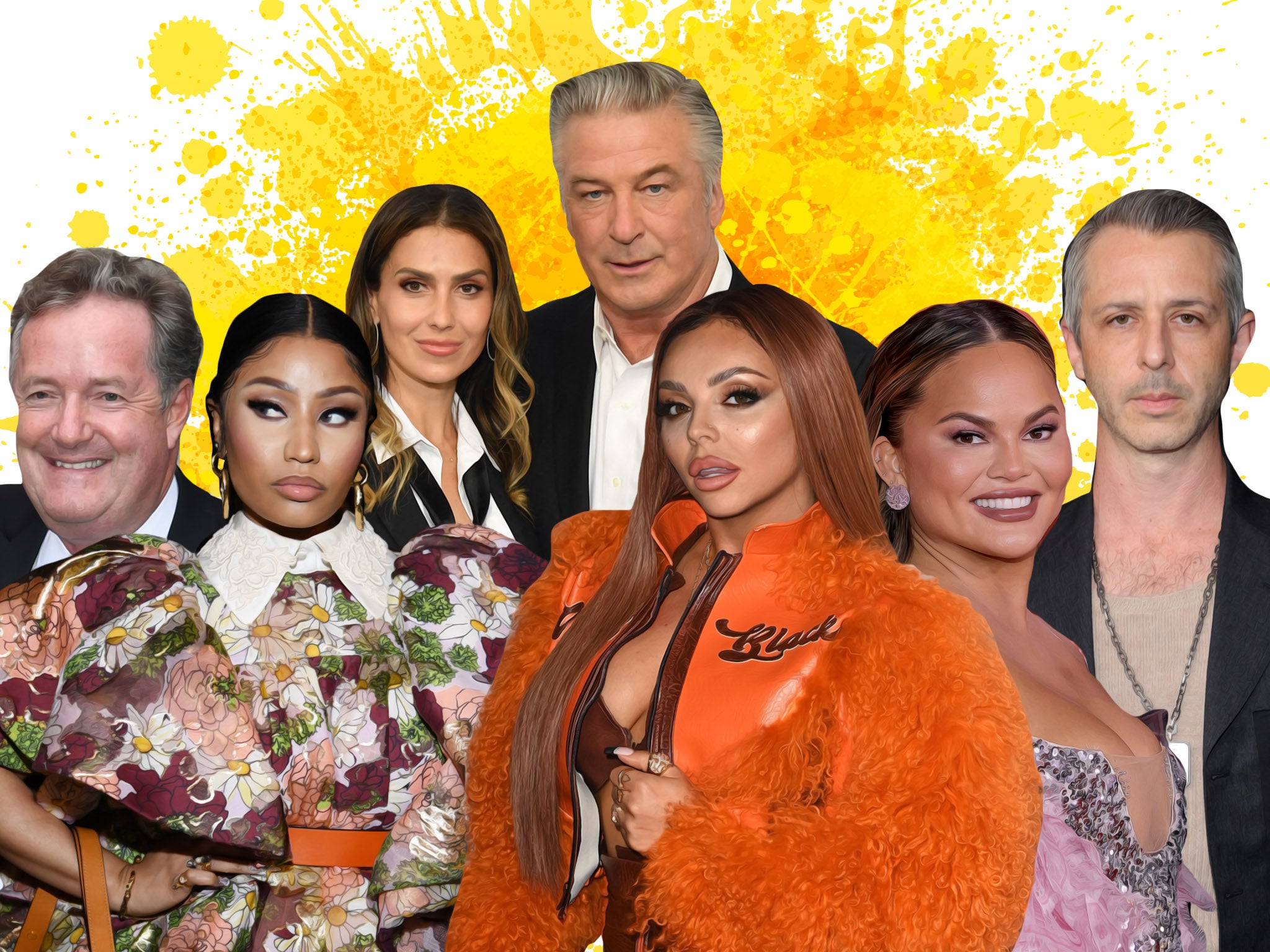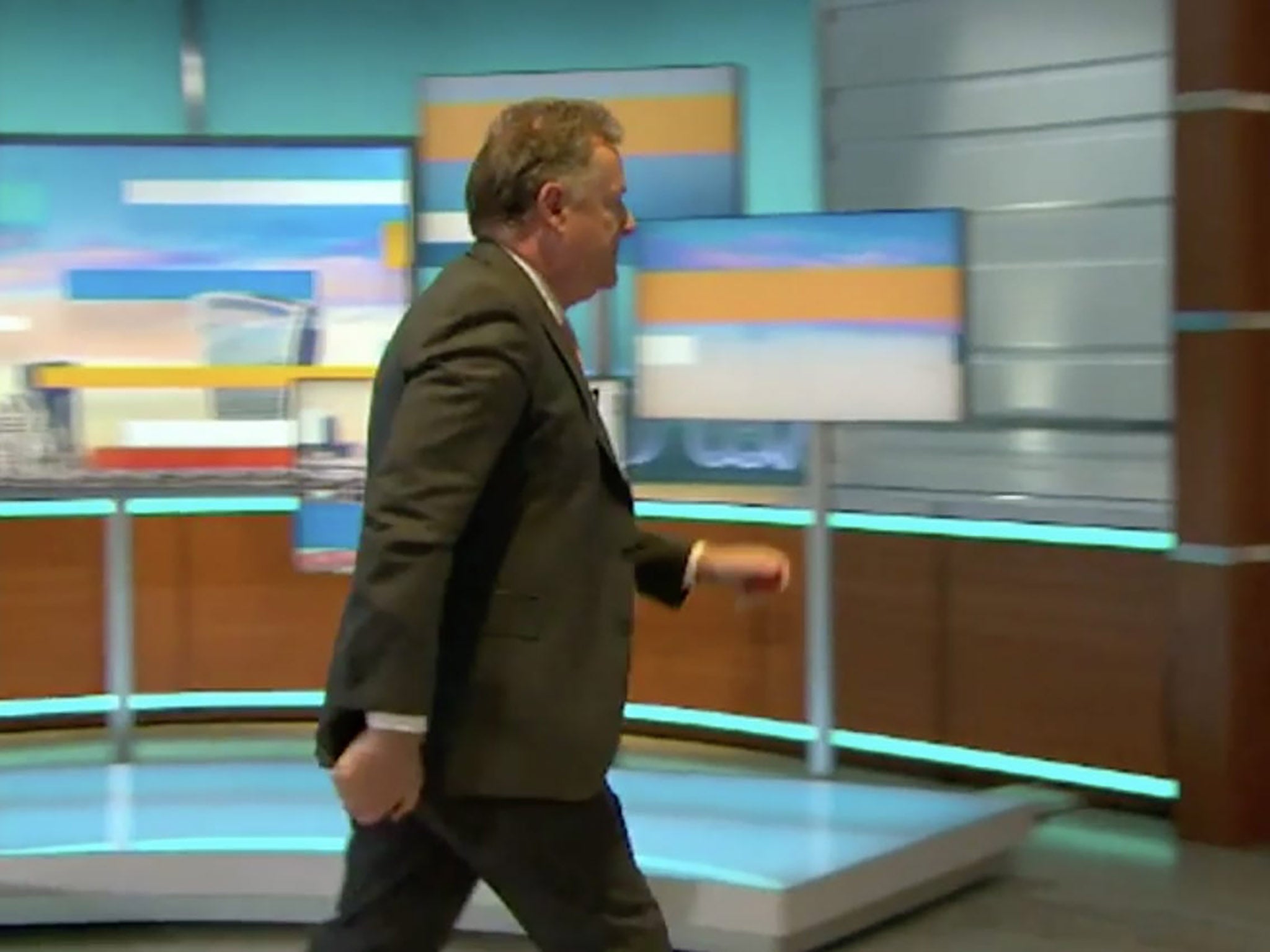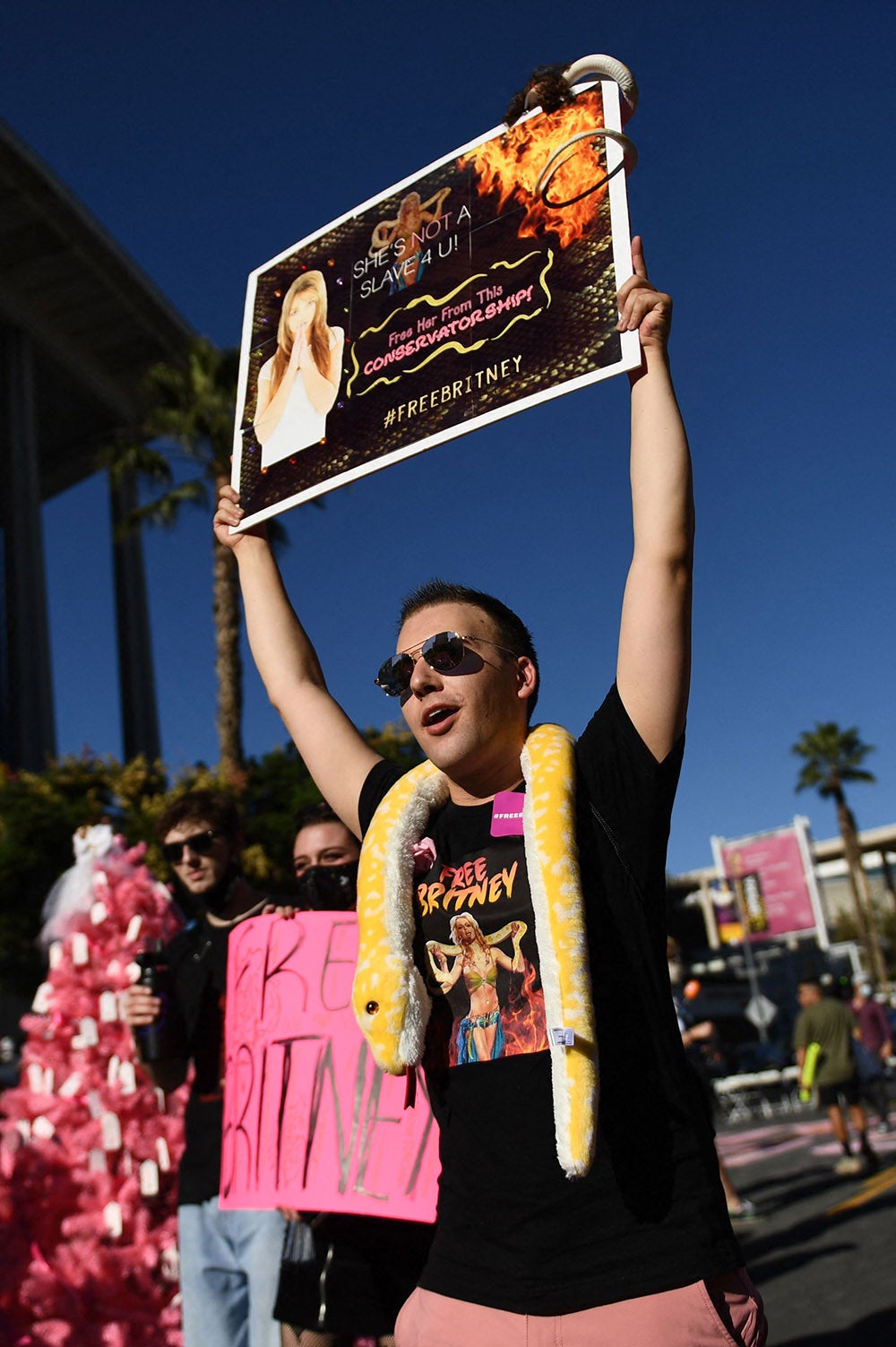In 2021, every celebrity begged you to love them or hate them
Whether they were deliberately stoking our anger or begging to be liked again, a parade of A-listers existed in extremes of public opinion this year, writes Adam White


In 2021, celebrities came in two flavours: “desperate to prove their righteousness”, and “eager to be as villainous as possible”. The latter cohort took a page from the Donald Trump playbook, which recognised that nothing creates headlines like sparking outrage. The former struggled with the fact that the internet loves little more than to kick a famous person when they’re at their most performatively nice. Everyone seemed to be a Piers Morgan or a Chrissy Teigen, two figures disliked by the internet for different reasons, but only one of them actively enjoying the condemnation.
The year began with the kind of internet scandal that gestured towards a lighter, sillier 12 months ahead. Now in the dark days of late December, we’ve learnt to no longer feel so cocky. But Hilaria Baldwin’s defence of her inexplicably Spanish accent in January did speak to something else that would kick off this year: a very public desperation for stars to be well-liked again. The celebrity spouse – who cooks and strikes yoga poses on her Instagram – was accused over Christmas 2020 of faking her Spanish lilt. Social media produced an alarming amount of evidence that she barely spent time in Spain as a child, therefore probably shouldn’t sound like Antonio Banderas. Was it an elaborate hoax? Were all of those ¡Hola! Magazine interviews deceptive? Was she actually named – gasp! – “Hillary”?
Declaring that she identified as “multi” based on her Spanish heritage, Baldwin claimed in July that we needed to “normalise our uniqueness”. “Our culture, languages, sexual orientations, religions, political beliefs are allowed to be fluid,” she wrote on her Instagram, dubiously using social justice terminology to, I guess, explain why she once claimed not to know “the English word for cucumber” on live television. In effect, Baldwin chose not to just admit that she may have played up her accent for effect – why be some rando from Boston when you could stretch your fortnight in Mallorca to an entire identity? – and did the absolute most instead.
Picking up the over-eager baton was Teigen, another internet celebrity who struck gold with Twitter before ultimately being destroyed by it. Over the years, the model and TV personality has faced what could be described as multi-tiered criticism. Level one came from actual crazies: right-wing zealots who have baselessly linked her with Jeffrey Epstein and child sex trafficking rings. Level two came from those who got to know her a little too well on Twitter, and found her chronic oversharing annoying. Level three was more serious: a number of celebrities, including Lindsay Lohan’s mother Dina and model Courtney Stodden, accused Teigen of historic cyberbullying.
I have worked so hard to give you guys joy and be beloved. The feeling of letting you down is nearly unbearable
Teigen quit Twitter at the beginning of 2021 – claiming she’d been “deeply bruised” by her experiences on the platform – before returning 22 days later, writing that she missed her “friends”. Amid the cyberbullying claims, Teigen once again quit Twitter. “I have worked so hard to give you guys joy and be beloved,” she tweeted. “The feeling of letting you down is nearly unbearable.” Teigen would return to this well of excessive self-flagellation throughout the year, constantly begging for a kind of internet-wide forgiveness.
Naked pleading tends to have an inverse effect – if only the litany of celebrities who recently defended Jeremy Strong had known that. The Succession actor was profiled in The New Yorker in early December, with interactions between Strong and writer Michael Schulman taking place over the course of several months. The article itself crafts an image of an actor who is brilliant, committed, difficult and complex. It’s a nuanced piece about a nuanced man. Many of his famous friends – potentially unused to interviews not being bland PR exercises – seemed to regard it as a hit piece. Jessica Chastain, Anne Hathaway, Aaron Sorkin and Adam McKay all became Jeremy Strong cheerleaders across social media, endlessly posting about the actor’s saintliness.
Morgan’s endless hectoring of Meghan Markle at the start of the year – in which he accused her of lying about suicidal thoughts due to media bullying – was little more than a publicity stunt
By deciding that Schulman – or maybe just the internet in general – had villainised Strong, they once again accomplished the inverse. Over the course of a week, Strong went from a celebrated actor with a fascinating and occasionally maddening approach to his craft to a kind of wounded puppy that a bunch of famous people felt the need to defend. So desperate was the move to create a less nuanced narrative around Strong that he became somewhat unbearable in abstract. It was much like a bizarre moment last year in which a raft of Marvel stars – including Robert Downey Jr, Mark Ruffalo and Zoe Saldana – praised Chris Pratt to the hilt after Twitter users jokingly declared him Hollywood’s “Worst Chris” in a random poll of actors with the same first name. Thanks to the over-the-top defence, the situation became an actually repellant one, rather than a bit of throwaway Twitter nonsense.
At the same time as stars set fire to their own reputations to prevent possible celebrity villainy, others have lent into it. Piers Morgan’s endless hectoring of Meghan Markle at the start of the year – in which he accused her of lying about suicidal thoughts due to media bullying, then left ITV’s Good Morning Britain amid thousands of complaints – was little more than a publicity stunt. Markle’s detractors may have chosen to interpret Morgan’s one-sided tussle with the ex-royal as the crusade of a valiant hero speaking truth to power, but it was more to do with crafting an image of anti-“woke” outrageousness.

By the time he was making a sport out of kicking Markle, Morgan’s exhausting, “saying it like it is” Twitter persona had already led to a book – Wake Up: Why the World Has Gone Nuts – and he’s spent much of 2021 going after random celebrity targets on Twitter. It’s been unbearably dull to behold, but also a masterclass in villainous branding in the post-Trump years: say something deliberately provocative, have every media outlet write about it, and cash bigger and bigger cheques as a result.
It was almost inevitable that he’d eventually cross paths with Nicki Minaj, with Minaj herself having embraced a kind of cartoonish dastardliness on social media. Her September claims that her Trinidadian cousin had “become impotent” as a result of receiving the Covid vaccine – leading to allegedly “swollen testicles” and a cancelled wedding – immediately went viral, followed by Minaj hitting out at the media for reporting her tweets supposedly inaccurately, and declaring her an anti-vaxxer. Morgan condemned Minaj for her tweets; Minaj called him “ugly”, a “clown” and a “stupid piece of s***”, and so forth. Despite appearing to be total opposites, though, both Morgan and Minaj swam in the same waters in 2021. They’ve long recognised the power and financial incentives of performative chaos, and as we provide them outrage clicks and grow enraged, they’re laughing all the way to the bank.
If we were to be generous, such an ethos may also have been the thinking behind the launch of Jesy Nelson’s solo career. The former Little Mix star had a tremendous amount of goodwill going into 2021, having been open about her struggles with mental health and bullying in the spotlight. It got rapidly squandered, though, with Nelson’s debut solo single “Boyz” the most nakedly offensive slice of Black-aesthetics-as-white-costume since the dark days of Iggy Azalea. She never seemed to have a good answer for related claims of “blackfishing” – or using wigs and make-up to present as ethnically ambiguous – and later giggled during an Instagram Live that saw Nicki Minaj (her again!) mock and condemn Nelson’s former bandmate Leigh-Anne Pinnock.
Nelson ended the year being the third most googled person in music (after Adele and Britney Spears), so she and her team may have been doing something right. But unlike Morgan and Minaj, there never seemed to be much of a game plan at work, nor the kind of ride-or-die fanbase that laps up drama of any kind. By the time “Boyz” exited the charts, Nelson had become a walking meme, someone estranged from her former girlband and vaguely toxic as a fledgling solo star. If one lesson emerged from it, it’s that you can’t just become a pop culture supervillain – you also need to be smart about it.

As for the year’s celebrity heroes, they’re hard to come by. Much like politics, celebrity has become so polarising that great pop culture unifiers beloved by all are difficult to recognise. Instead we cling to a handful of the same people: Keanu Reeves; Sandra Bullock; Brendan Fraser; Dolly Parton (though her funding of the Moderna vaccine may have made her an enemy to anti-vaxxers, for all we know).
Only Britney Spears entered that sacred group this year. Her freedom from the conservatorship she’s been under for 13 years – meaning her father had total control over her personal and professional affairs – wasn’t just a rare feelgood story in a year of rampant horror, it also cemented Spears’s status as a figure of universal adoration. You may not get Britney as an artist and pop star (poor you), but you will at least want the very best for her. She has been a shining light of buoyancy and triumph in a year that felt set up to spark misery in all of us, and we ought to be grateful.
Expect more from Britney in 2022, as well as a rise in her modern opposites: stars whose default mode is chaos, or who lead with gleeful antagonism. It’s similarly a wonder that we’ve got through nearly two years of a pandemic without a contingent of A-listers coming out as anti-vax. As the populace becomes increasingly exhausted by continued Covid drama, expect more celebrities to rally against it all. If only because it’d be the most annoying thing imaginable and, if 2022 is anything like the last few weeks of 2021, we should all be preparing for the worst.






Join our commenting forum
Join thought-provoking conversations, follow other Independent readers and see their replies
0Comments